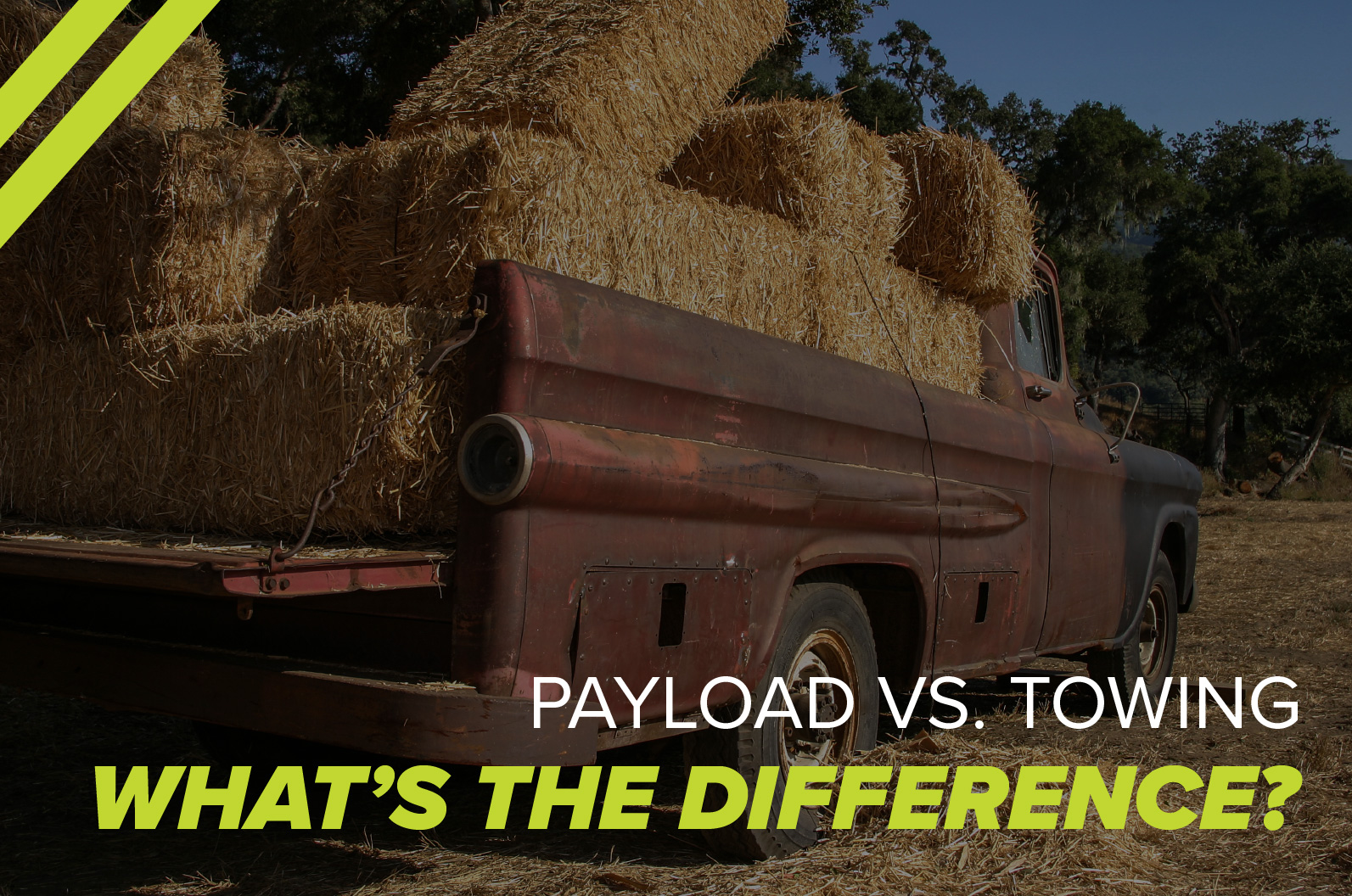If I’ve already lost you, do not fear. Even some of the biggest truck enthusiasts can’t answer this question. It’s something that manufacturers often keep close to the chest, making the information hard to find on their websites and can usually only be found in a sea of technical specs or buried in your owner’s manual.
Let’s start with the basics: what is payload? Even dictionary.com can help you here. By their definition, you’ll be worried about a bomb going off under your driver’s seat. If you think I’m kidding, see for yourself here.
Payload is anything inside your vehicle, be it in the back seat or in the bed of your truck. That includes people, pets, or a load of mulch from your latest trip to Home Depot. The important part to remember is that payload refers to anything that’s weight must be supported by your vehicle’s factory frame and suspension, not that of a trailer.
Towing, on the other hand, is the weight which your vehicle is able to pull down the road. That weight is typically supported by the frame and suspension system of a trailer and not by your vehicle.
Think of it this way: you have 100 pounds of rock that need to be transported from one end of your block to the other. If you were to load that rock into a backpack, strap it to your back, and walk the rock to the other end of the block, that would be your payload. Your legs are the suspension in this scenario and you must bear the 100 pounds of weight being moved.
If you were to load the 100 pounds of rock into a wagon and pull it behind you to the other end of the block, that would be towing. The 100 pounds of weight is supported by the axles of the wagon and your only burden is the effort required to pull the wagon.

Such an easy concept that seems to escape most people simply because manufacturers fail to explain the difference properly.
So… who cares? The real reason everyone should have a basic understanding of this concept is simple: you need to know the limits of your vehicle. As a general rule, your max towing capacity will always be higher than your max payload (think of how much more rock you can pull in the wagon). When people confuse the 2 they often haul more than the maximum payload specified by the manufacturer. Long story short, don’t be this guy…

An aside for the really technical readers: yes, it’s true that these 2 variables affect each other. Tongue weight must be factored into payload as it does need to be supported by the vehicle’s suspension but that’s getting a bit too technical for this read. We’re just sticking to the basics here.
So what does it mean when you talk about a 1/2 ton truck vs. a 3/4 ton truck or even a 1-ton truck? That’s a much more complex question with a simple answer: it doesn’t mean anything. That’s because these terms date back to the 1940s when trucks were only capable of up to a 1-ton payload. Generally speaking, a 1/2 ton truck refers to any full-size pickup on the road today. It’s the baseline for what classifies a vehicle as a “full-size truck” in the first place. When you move up to 3/4 and 1-ton trucks, you simply get beefier frames, suspensions, and engines to handle the extra weight these vehicles are capable of hauling. The important part to remember is these terminologies are used to help determine the “class” of a truck rather than it’s real-world capability. For example, a truck can be classified as a “1-ton” truck but has an actual max payload of over 4,000 lbs. (the equivalent of over 2 tons).
Still confused? So is everyone else. Manufacturers are always changing how they calculate these specifications and there’s no set standard for any of it. If payload and/or towing capacity is the make-or-break factor when it comes time to purchase it’s best to do as much online research as you can and seek out a knowledgeable sale associate to really get the details you’re looking for.
Find your next truck at morries.com and one of our information-rich sales consultants can help you figure out the payload and towing capacity.





